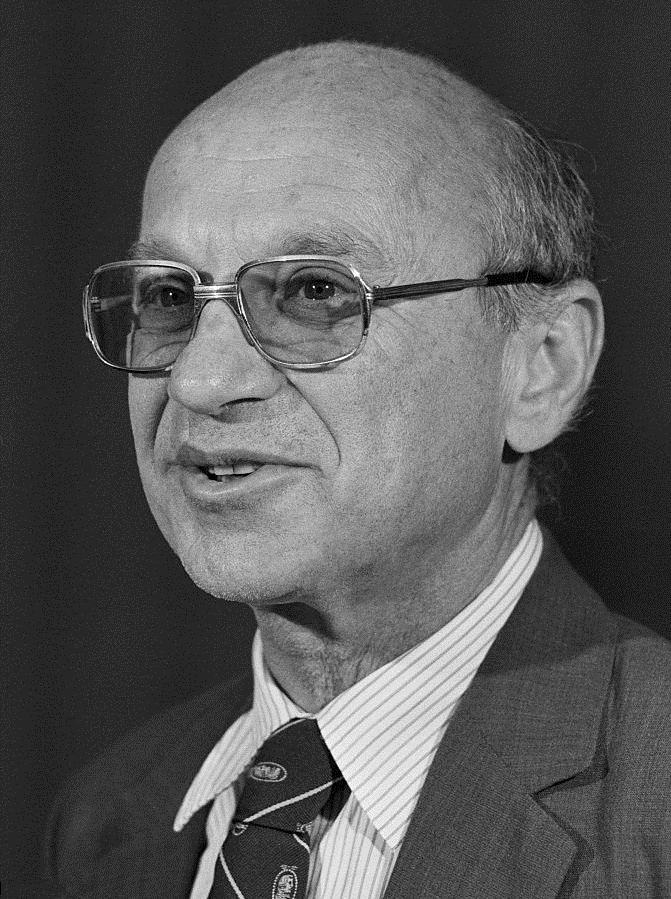Milton Friedman was an American economist known for his advocacy for free-market capitalism.
Milton Friedman (1912 – 2006) was one of the twentieth century’s most influential economists. His famous quote, “There is no such thing as a free lunch.”, was directed at policymakers and the public who failed to recognize all the consequences and costs of government actions. He argued that government intervention in the economy often led to unintended consequences and inefficient outcomes. Instead, he advocated for a limited role of government in economic affairs and the importance of allowing market forces to operate freely. Friedman’s views were in sharp contrast with John Maynard Keynes, who advocated government involvement in micromanaging the economy.
 1976 Press Photo Professor Milton Friedman wins the Nobel Prize for Economics
1976 Press Photo Professor Milton Friedman wins the Nobel Prize for Economics
Friedman warned that government spending programs, particularly welfare programs, can create dependency and disincentivize individuals from seeking employment or pursuing opportunities for self-improvement. This can lead to long-term reliance on government assistance and discourage personal responsibility.
Friedman maintained that action by policymakers at the Federal Reserve could do more harm than good because the lag between implementing a monetary policy and impacting the economy are unknown. For example, a contraction of the money supply during the Great Depression exacerbated what would have been a deep recession into the Great Depression.
Monetary Policy – The Power of an Interest Rate
Fiscal Policy – Managing an Economy By Taxing and Spending
Causes of Inflation
Business Cycles
Gross Domestic Product – Measuring an Economy’s Performance